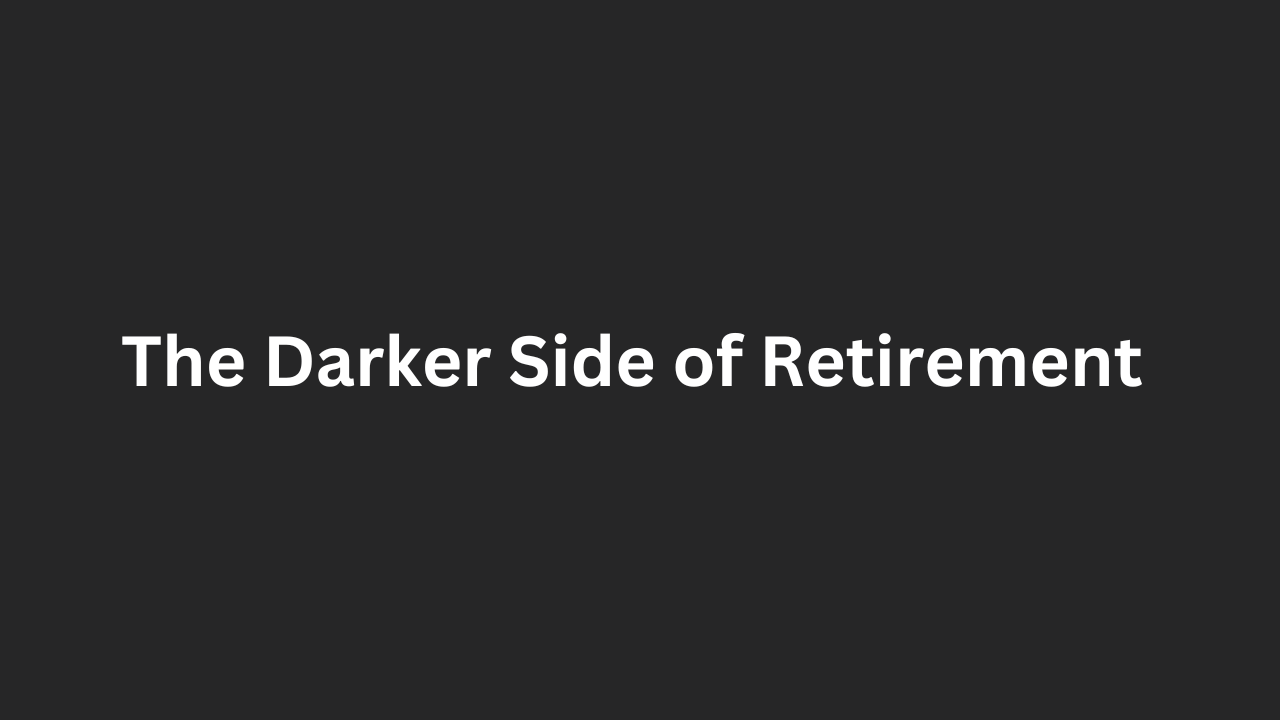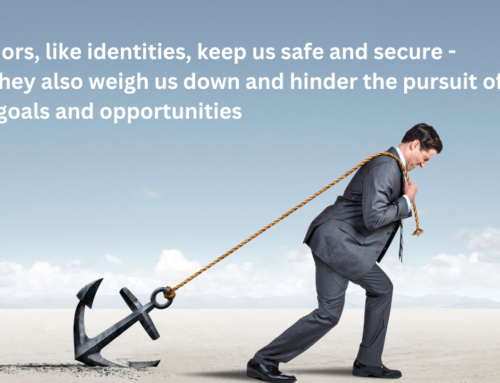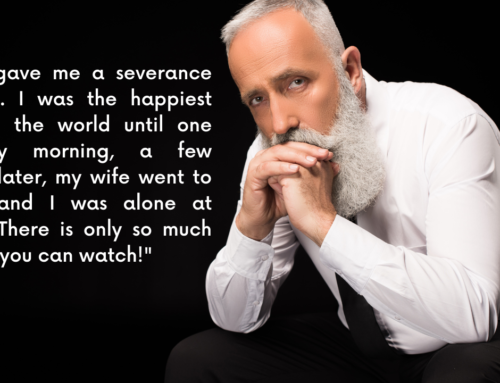What do you do for a living? Toby asked Jack at a birthday party for a mutual friend.
Jack muttered under his breath, “I am a retired pilot” and he quickly excused himself from the conversation. Finding himself caught off guard and embarrassed, he wondered why such an innocuous and common question stirred up such intense emotions.
On the surface, this exchange is merely a reflection of the everyday social pleasantries’ we humans engage in to make polite conversation with strangers. But dig a little deeper and you’ll start to understand that for some retired folks it is a loaded question that causes panic, anxiety and even shame. Especially the first time the question is asked – as was the case with Jack.
For some of us, retirement challenges how we identify and conceive of ourselves. We may even wonder where we belong, what our place is in the world and to whom do we matter. For a newly retired person who has yet to restructure their life in retirement, a question like what do you do for a living? can elicit shame and a host of other negative emotions.
What could possibly be negative about retirement?
In many cultures, and particularly in North America, there is a strong emphasis on productivity and work as key measures of a person’s worth. This belief originates in the Protestant Work Ethic and although today it is divorced from religious practice, it is perpetuated by cultural norms and unchallenged beliefs.
The Protestant Work Ethic is a concept popularized by German Sociologist Max Weber’s controversial book The Protestant Ethic and the Spirit of Capitalism. In it Weber argues that the radical transformation of Western Europe’s economies from Feudalism to Capitalism in the 16th and 17th centuries was a direct result of Protestant beliefs popularized by the teachings of Martin Luther and John Calvin. These Theologians maintained that hard work, diligence and career success were measures of one’s personal value. Work was the best way that one could serve g-d and the quickest way to salvation in this life and beyond.
The New York Times Columnist Elizabeth Kolber explains that claims made in the “Protestant Work Ethic”, be it in reference to the history of religion or economics, are still being debated because as she aptly points out, “it isn’t really a work about the past; it’s an allegory about the present”.
Sociology professor Steven Vallas of Northeastern University echoes Kolber’s sentiment. He maintains Americans relationship to work is, “The single most important way of proving your worth as a person”.
Covid 19 was a retirement dress rehearsal and showcased for many the darker side of retirement
Gili Malinsky of CNBC points out that evidence of this phenomenon became quite apparent during Covid 19. As millions lost jobs, depression, anxiety, and suicide rates increased. For those who study the effects of unemployment, such as Sociology professor, Jennifer Sherman, this is not all that surprising. In describing people’s experiences with job loss she explains,
“they talk about depression, they talk about shame, they talk about self-hatred. It’s not simply about can you afford your day-to-day existence but are you worthy of human existence”
What no one tells you about the darker side of retirement
The darker side of retirement looks very similar to Professor Sherman’s description of people’s experience of unemployment. If working hard is a fundamental aspect of my value as a human being, what happens when I retire? From where do I derive a sense of self-worth?
Just as with the pandemic, retirement can lead to increased alcohol consumption, drug abuse and suicide. Emotionally people struggle with depression, anxiety and shame.
Best-selling author and Professor, Brené Brown, defines Shame as, “the intensely painful feeling or experience of believing that we are flawed and therefore unworthy of love, belonging, and connection”.
Shame thrives in secrecy.
In a recent conversation with a coaching client struggling with the experience of retirement he explained,
“I was raised with cowboy values. Watching John Wayne & Clint Eastwood. We are raised to play hockey. Be tough. It seemed easier to struggle than admit that I was having trouble with this whole retirement thing. I wasted years thinking I could do it alone. I wish I had help figuring out this stage of my life instead of suffering in silence”.
As a retirement coach and workplace consultant it’s the silence that worries me most because it magnifies the internal chatter in our heads, and we become overly focussed on this one-sided conversation that erodes mental and physical well-being.
An alternate and better approach to dealing with shame is to share it because as Brown explains, “If we cultivate enough awareness about shame to name it and speak to it, we’ve basically cut it off at the knees”. If you speak about the shame, anxiety or depression you’re feeling with a trusted other, you shed light on the darker side of retirement. And when these emotions are given space, they disappear, allowing you to move forward and create the life you want and deserve.
In week 2 of our brand-new hybrid course called Reinventing Retirement starting fall 2023, we’re going to spend our time unpacking why retirement is so hard and other myths about this transition.
If you’re thinking about retirement or struggling now that you are retired, you don’t want to miss this! So be sure to sign up for our newsletter so that you have all the details about the course.
Need some guidance now? Reach out. I am here to help!
Dr. Gill


